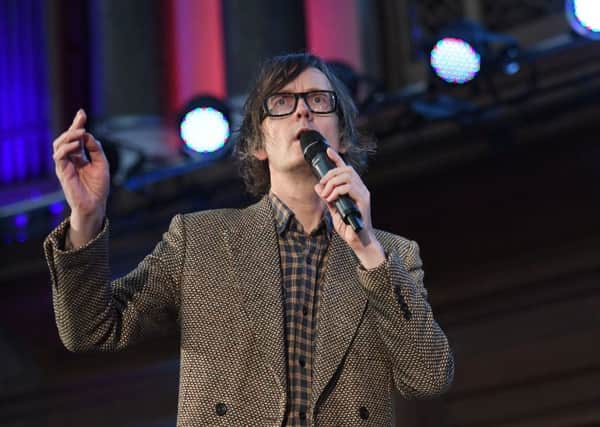Anthony Clavane: Jarvis Cocker sounds right note on BBC’s Late Junction cut


It might not be up there in most people’s minds with library closures, the slashing of arts funding and the continuing assault on local museums, but the appalling treatment of this cult show is just as much an act of cultural vandalism.
The Beeb’s decision, triggered by the £800m in savings forced on it by our myopic, philistine government, comes in the same week that Richard Hawley’s musical Standing at the Sky’s Edge opens in Sheffield.
Advertisement
Hide AdAdvertisement
Hide AdWhat’s the connection? Well, Cocker and Hawley have, alongside many other musicians from the supposedly unfashionable “provinces”, been an influence on – and been influenced by – Late Junction since it was first broadcast 20 years ago.
The Radio 3 show prides itself on showcasing an eclectic mix of electronica, jazz and classical music. It can sometimes, like the late, great John Peel’s Radio 1 vehicle, be a difficult listen. One minute you are humming along to the gentle, ambient sounds of epirotic folk, the next you are struggling to absorb an assault on the ears from Musical Vomit, the first, true punk band.
Therein lies its weird and wonderful appeal. Two particular highlights in recent years were a Scott Walker-themed mixtape from Jarvis and a special night of Sheffield musicians working in new, experimental and alternative genres. Cocker and Hawley, of course, are former Pulp bandmates. Back in the day, they were part of the creative revolution that transformed the People’s Republic of South Yorkshire.
Despite severe social problems, including mass joblessness, sink estates, heavy drinking and heroin addiction – or, quite possibly, as a reaction to them – a fresh-faced batch of penniless 80s’ indie bands sprang up on the local music scene. Many were championed by Peel, whose late-night show was, itself, a huge influence on Late Junction. They became known as the Sheffield Sound, merging the anarchic fury of punk with an avant-garde, electronic sensibility.
Advertisement
Hide AdAdvertisement
Hide AdThe Sheffield Sound was the product of many things, but after reading an interview with Hawley in this paper I now realise it was particularly indebted to the city’s brutalist architecture. For Standing at the Sky’s Edge, apparently, is a love song to Park Hill.
Musicals about social housing are not normally the most enticing of prospects. Built in 1961, the mammoth estate was one of the most ambitious inner-city housing schemes of its time. It achieved notoriety for crime, drugs and violence but in 1998 underwent an upmarket, Stirling prize-shortlisted makeover and is now Europe’s largest listed building.
Park Hill, like Late Junction, divides people. You either love it or hate it. To Hawley, it tells the story not only of Sheffield but also of the optimism of postwar Britain; a utopian estate where, as one of his songs notes, there’s “hope hung on every washing line”.
When brutalist icons like Park Hill, Hyde Park, Broomhall and Gleadless Valley were built, Sheffield was still dependent on mining, iron and steel. It was a city, as its marketing manager put it, “on the move”, its new skyline offering up as a metaphor for a renewed north. It had been pounded by German bombers early on in the war and council leaders were determined to build a New Jerusalem from the rubble and squalor of the past.
Advertisement
Hide AdAdvertisement
Hide AdThe city’s innovatory housing estates, with their pioneering “streets in the sky”, were the products of a universal welfare state. They were soaring monuments to civic optimism, venerated in books such as Sheffield: Emerging City, Ten Years Of Housing In Sheffield and even the Shell Guide. The youngsters who grew up in this brave new world went on to form bands like Pulp, Heaven 17, Human League and ABC.
Not forgetting Musical Vomit.
I liked most of these bands but MV were my particular favourite beat combo. They appealed to my teenage punk self - although now I find them to be brutal, destructive and, yes, a bit sick-making.
Which, funnily enough, is exactly the same way I feel about the BBC’s swingeing cuts to its left-field music programming.